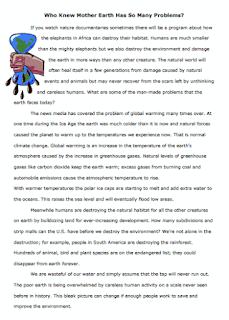Happy Thanksgiving
I hope you find this material useful
Greeting Card
e-card :http://www.care2.com/send/card/6731
Quote:
Despite
the changes which come into our lives and with gratitude in our hearts, may we
fill our days-as much as we can-with those things which matter most. May we
cherish those we hold dear and express our love to them in word and in deed.”
–Thomas
S. Monson, “Finding Joy in the Journey,”, Liahona, Nov 2008, 84-87
Lesson Plan :
Lesson
Plan Title : Thanksgiving Myths
Age
Range: Grade 6 through
grade 8 (Middle School)
Overview
and Purpose: Several of
the Thanksgiving "facts" we teach our children are historically
inaccurate. This lesson will help students separate this holiday's facts from
fiction.
Objective:
The student will be able
to name five Thanksgiving myths and provide the correct information about the
myth.
Resources:
Internet
access for each student
Activities:
Have
students research Thanksgiving on the internet and find five myths about the
holiday. Have them write a paragraph explaining how each inaccuracy began and
what the correct information is. Come together as a class and discuss the
students' findings.
Wrap
Up:
You can
introduce this lesson by naming some common myths that the students would be
familiar with and discussing whether they are fact or fiction.
























